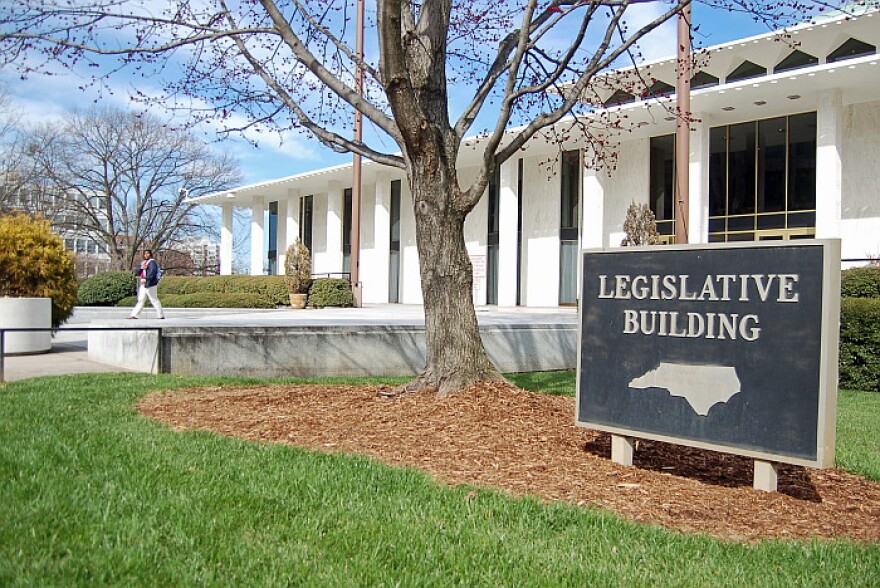One of the last-minute pieces of legislation the General Assembly passed Tuesday night is designed to make North Carolina less friendly to undocumented immigrants. would ban what are known as "sanctuary cities." It would also ban police from accepting registration cards from consulates as a valid form of identification.
Republican Jerry Tillman told his colleagues on the Senate floor last week that he was alarmed by a case in California. Police there released an undocumented immigrant from jail instead of turning him over to federal authorities. Two and a half months later, he was charged with shooting and killing a young woman.
ŌĆ£32-year old, beautiful, talented Kate Steinle would probably be alive today if San Francisco had any guts about them whatsoever, which they donŌĆÖt,ŌĆØ Tillman said.
Tillman and Republican representatives in the state House and Senate want to prohibit any local government from de-prioritizing the enforcement of federal immigration laws. Places like San Francisco are often referred to as sanctuary cities for having those kind of policies. No city in North Carolina calls itself a sanctuary city. But Tillman has a list.
ŌĆ£You want to start with Durham, Chapel Hill, Charlotte, Carrboro. You know where those liberal bastions are. And if you have policies like that, who in the world could stand up and say, ŌĆśThatŌĆÖs okay. We want to be a sanctuary city.ŌĆÖ We need to punish them. If I could, IŌĆÖd take their charters," he said.
Lydia Lovell is the Mayor of Carrboro. She said TillmanŌĆÖs remarks are unfortunate.
ŌĆ£We constantly are passing resolutions and working for ways to support our immigrant community because they are a very active part of our community, and contribute in many, many ways," she said.
Carrboro is smaller than most of North CarolinaŌĆÖs cities, but it was the first to take action in favor of immigrants. In 2005, the town directed its patrol officers not to arrest someone on the sole basis of immigration status. About a half dozen municipalities now have ordinances that resemble those of a sanctuary city.
ŌĆ£If itŌĆÖs a city that makes it easier for people who are still working through the immigration process and become absolutely legal citizens of our country that live in our town, if thatŌĆÖs what it means, than IŌĆÖm happy to be a sanctuary city," Lovell said.
This legislation could also change the way police interact with people anywhere in North Carolina. Patrol officers in many areas verify peopleŌĆÖs identity with documents that are not issued by the state. (R-Onslow) said those documents arenŌĆÖt good enough.
ŌĆ£It is not a valid form of identification. There is really no control over it. ItŌĆÖs a farce," he said.
Cleveland said that to "get control of the illegal alien problem," police should accept only a state-issued ID or a passport. This means patrol officers canŌĆÖt take registration cards from consulates, which some people use. But Burlington Police Chief Jeff Smythe says identification of some kind is necessary. Otherwise officers would have to take minor offenders to jail to have their finger prints taken.
ŌĆ£Sometimes you have to stand in line in front of the magistrate if thereŌĆÖs drunk drivers that are there being idiots. It literally can be hours out of my magistrateŌĆÖs day in order to get you there to write you a speeding ticket for driving 20 over," Smythe said.
Late Tuesday night, Cleveland scaled back his proposal so that only consular registration cards are banned. This means police could use a college ID or a card issued by a local agency to identify someone.
Earlier Tuesday, Governor Pat McCrory said in an email that he opposes any sanctuary for undocumented immigrants. On Wednesday, the bill is on his desk.






